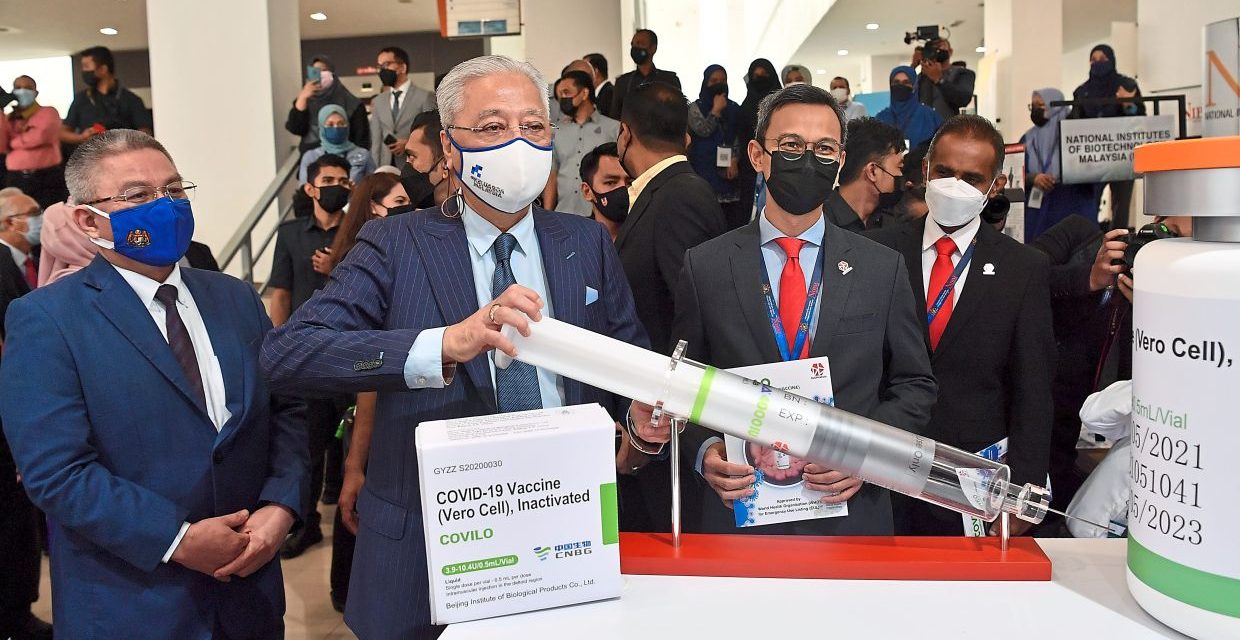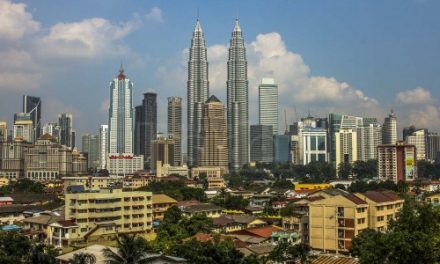PM announces launch of three initiatives for vaccine development
Malaysia can look towards producing quality and safe vaccines with three initiatives ready for take-off, including the development of two Covid-19 vaccines, says the Prime Minister. Datuk Seri Ismail Sabri Yaakob said that the other two vaccine initiatives were for cholera, and a pre-clinical evaluation for a first-of-its-kind therapeutic cancer vaccine for head and neck cancer. With the National Vaccine Development Plan in place, he said the country could position itself as a vaccine manufacturing hub and with this, create greater confidence on vaccine usage. “These efforts will further boost Malaysia’s readiness in facing future pandemics. The government is committed to preparing our health sector for such eventualities,” he said. In 2020, Malaysia’s import of pharmaceutical products stood at US$1.94bil (RM8.05bil). Vaccines were among the top five imported purchases, with Covid-19 vaccines alone costing RM4.3bil. (The Star)
Malaysia Healthcare Travel Industry Blueprint 2021-2025 launched to enhance healthcare travel ecosystem
A blueprint to enhance and strengthen the current healthcare travel ecosystem was launched on Monday (Nov 1). Health Minister Khairy Jamaluddin said the Malaysia Healthcare Travel Industry Blueprint 2021-2025 has been crafted with the aspiration of providing a healthcare experience that provides the best of medical and service excellence throughout the entire patient journey. “This blueprint is unique and future-facing as it aims to further establish Malaysia as a leading travel destination and provide a clear guide to our healthcare value chain and industry,” he said during the virtual launch of the blueprint via Zoom. Khairy said that the blueprint would cover five different approaches and was anchored on three strategic pillars; the healthcare travel ecosystem, the Malaysia healthcare brand and the markets. Khairy pointed out that more than 1.22 million healthcare travellers chose Malaysia as their destination in 2019, adding that travel healthcare revenue then garnered close to RM1.7bil. (The Star)
Property rental: Minister admits discrimination exists
Racial discrimination does exist in Malaysia’s property rental market, Local Government Minister Datuk Seri Reezal Merican Naina Merican acknowledged in Parliament. However, he said it would be “very awkward” to enact a law that seeks a fair balance between the rights of both landlords and tenants while including the landlord’s preference for certain tenants, even if other countries have clear-cut anti-discrimination legislations. This was in reply to Bangi MP Ong Kian Ming who wanted to know if the soon-to-be tabled Residential Tenancy Act would address racial discrimination in Malaysia’s property rental market. Reezal Merican said the Residential Tenancy Act is meant to standardise rental agreements and establish a tribunal to resolve disputes between tenants and landlords. The new law is in the final stages of its drafting and is scheduled for tabling in Parliament in July 2022. (Malay Mail)
School rotation model kicks off in Klang Valley and Melaka
It is back to school for Level One (Years One, Two and Three) primary school pupils, as well as Forms Three and Four students in secondary schools in the Klang Valley and Melaka. However, not all returned for face-to-face lessons yesterday as the Education Ministry only permitted half of a class to be in school while the others were to continue with home-based teaching and learning (PdPR) using a weekly rotation model. “The students have a PdPR timetable to follow and they need to manage things on their own during this time,” said National Union of the Teaching Profession (NUTP) secretary-general Wang Heng Suan said, adding that students will get real-time teaching and learning when they return to school. In September, the Education Ministry introduced a rotation system whereby only half the number of students are allowed to attend school for face-to-face learning, while the other half continued with PdPR. He said schools had received requests for teachers to livestream lessons to those at home. “We do not allow this because if we do, no one will want to come to school. We want to bring students back to school,” said Wang. (The Star)
Indonesia sets 2024 deadline to move capital from Jakarta to Borneo’s East Kalimantan province
Indonesia is moving ahead with the plan to relocate its capital to the island of Borneo in the first half of 2024, after the proposal languished for months amid the pandemic. In the draft submitted in September, South-East Asia’s biggest economy plans to move the capital from Jakarta to an area of 56,180 hectares in East Kalimantan province. The bill also states that the president, with approval from parliament, gets to decide who will govern the capital, scrapping the requirement for an election often marred by fierce political battles. Indonesia, which has contemplated the idea for decades, would be the third country in Southeast Asia to relocate their capital cities. Next-door neighbor Malaysia moved its administrative capital to Putrajaya in 2003 and Myanmar changed its capital to Naypyidaw in 2006. Widodo, known as Jokowi, said the relocation will help spread economic activities outside of the most-populous island of Java and narrow its income gap with the rest of the country. However, environmental groups have raised concern about the potential damage to Kalimantan’s rainforests, which is home to endangered species such as the orangutan. (The Star)
Covid-19 self-test kits going for as low as RM6.90 per unit
Covid-19 self-test kits can be obtained for as low as RM6.90 per unit, says Domestic Trade and Consumer Affairs Minister Datuk Seri Alexander Nanta Linggi. He said the sale of these kits will be expanded to more premises and made available at supermarkets, convenience stores and petrol stations. Prior to this, Covid-19 self-test kits that had received conditional approval from the Medical Device Authority were sold at selected clinics and pharmacies. The government had set the maximum retail price for the kits at RM19.90 per unit effective Sept 5. Nanta said the decision to expand the sale of Covid-19 test kits will be beneficial and result in a drop in prices, improve competitiveness in the retail sector and maintain supply. On the new ceiling price of the test kits, he said the matter will be announced soon and that the price will be determined after taking into consideration all aspects, including the interest of consumers and traders. (The Star)






